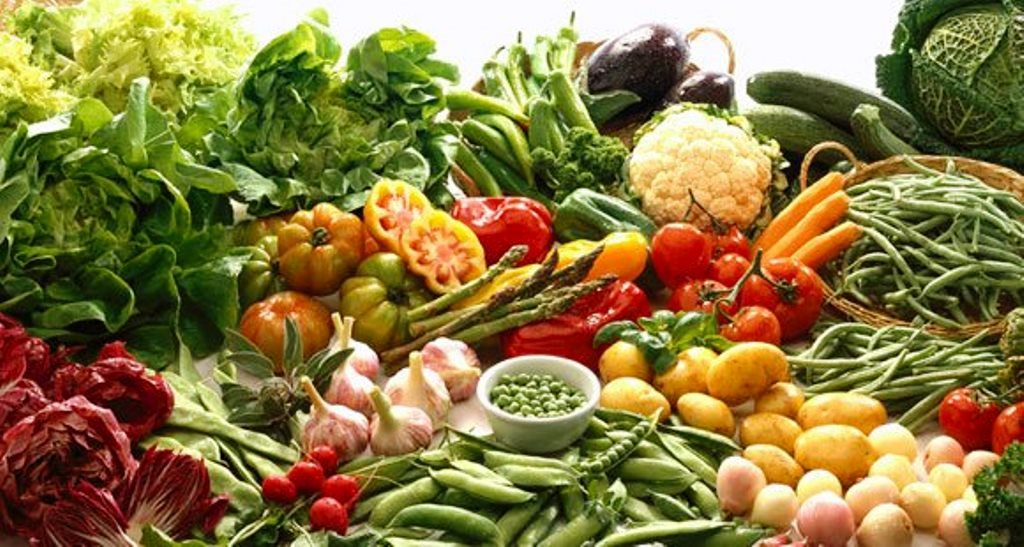Composite food index rose by 13.28 per cent in October 2018 compared to 13.31 per cent in September 2018, according to data from the National Bureau of Statistics (NBS).
TheNewsGuru (TNG) reports the NBS attributed the rise in the food index to increases in prices of fruits, meat, vegetables, potatoes, yam and other tubers, bread and cereals, and oils and fats.
“On month-on-month basis, the food sub-index increased by 0.82 per cent in October 2018, from 1.00 per cent recorded in September.
“The average annual rate of change of the food sub-index for the twelve-month period ending October 2018 over the previous twelve-month average was 15.36 per cent, from the average annual rate of change recorded in September (15.92) per cent,” the NBS stated.
According to the NBS, in October 2018, food inflation on a year on year basis was highest in Bayelsa (16.36%), Abuja (15.85%) and Taraba (15.27%), while Bauchi (12.17%), Oyo (11.76%) and Plateau (11.36%) recorded the slowest rise in food inflation.
On month on month basis, however, October 2018 food inflation was highest in Kogi (2.28%), Plateau (2.42%) and Nasarawa (2.17%), while Akwa Ibom, Benue, Kwara and Ondo all recorded food price deflation or negative inflation (general decrease in the general price level of goods and services or a negative inflation rate) in October 2018.
Meanwhile, data from the NBS consumer price index (CPI) indicated that Nigeria’s inflation rate, which climbed marginally to about 11.28 per cent in September, dropped slightly to 11.26 per cent in October.
TNG reports CPI, which measures inflation rate for goods and services in the Nigerian economy, decreased by 11.26 per cent (year-on-year) in October 2018, about 0.02 per cent points lower than the rate recorded in September 2018.
“The “’All items less farm produce”’ or Core inflation, which excludes the prices of volatile agricultural produce stood at 9.9 per cent in October 2018, up by 0.1 per cent from the rate recorded in September 2018 (9.8) per cent.
“On month-on-month basis, the core sub-index increased by 0.80 per cent in October 2018 compared with 0.64 per cent recorded in September 2018.
“The highest increases were recorded in prices of fuel and lubricants, vehicle spare parts, domestic and household services, carpets and other floor coverings, Dental services, Hospital services, repair of household appliances and Medical services.
“The average 12-month annual rate of change of the index was 10.90 per cent for the twelve-month period ending October 2018 from 11.09 per cent recorded in September,” NBS stated.
On a month-on-month basis, the report said headline inflation index increased by 0.74 per cent in October 2018, down by 0.09 per cent points from the rate recorded in September 2018 (0.83) per cent.
The report said increases were recorded in all 12 classifications of individual consumption by purpose (COICOP) divisions that yielded the headline index.
The percentage change in the average composite CPI for the 12 months period ending October 2018 over the average of the CPI for the previous 12 months period, the report said, was 12.78 per cent, from 13.16 per cent recorded in September 2018.
The urban inflation rate increased by 11.64 per cent (year-on-year) in October 2018 from 11.70 per cent recorded in September 2018, while the rural inflation rate increased by 10.93 per cent in October 2018 from 10.92 per cent in September 2018.
On a month-on-month basis, the urban index rose by 0.76 per cent in October 2018, from 0.86 per cent recorded in September, while the rural index also rose by 0.72 per cent in October 2018, down from the rate recorded in September 2018 (0.82) per cent.
In August, headline inflation rate rose from 11.14 per cent in July to 11.23 per cent after maintaining 18 consecutive declines from about 17.78 per cent in February 2017.
The rate again recorded a marginal increase by 0.05 per cent, from 11.23 per cent in August to 11.28 per cent in September 2018, about 0.84 per cent rise on a monthly basis.
![Police arrest man for beating his pregnant wife mercilessly over food [Photos]](https://thenewsguru.ng/wp-content/uploads/2018/08/man-beat-wife.jpg)




